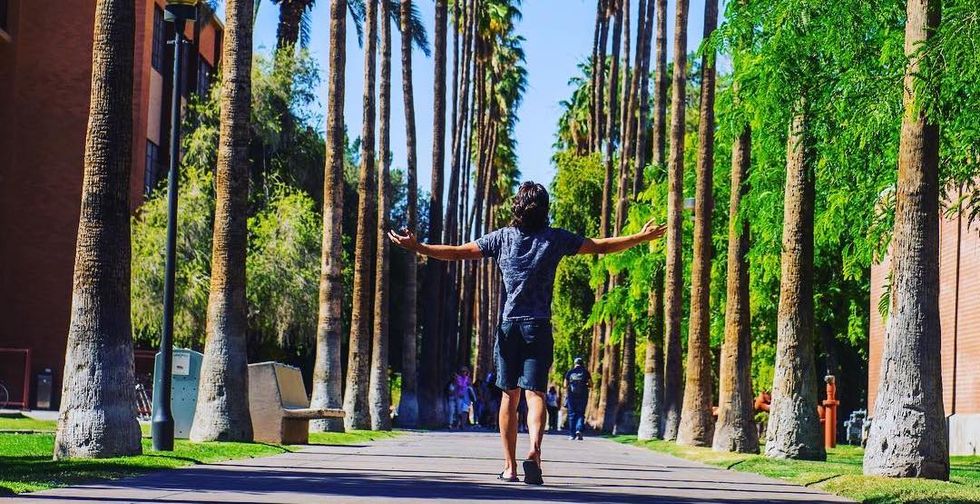"I go to college to learn, but most of what I learn is not in the classroom."
When people say this, they usually refer to a discovery of their identity or life skills that they must maintain by themselves. For me, most of the fun places on campus are the ones I stumble on by accident or because I thought I had nothing better to do.
In the middle of the Tempe campus, there is an underground library, Hayden. On top of that library is a big grass lawn that people can walk on. This library is big and has lots of interesting rooms, but that's not what this story is about.
I've been to the lawn above the library twice this week. And both of those experiences helped me learn about people without a textbook or my psychology lecture notes.
On Monday, on my way to economics, I saw a book sale. Tents and tables piled high with books were lined up along the east side of the lawn. You might as well have offered me free candy, even if it wasn't Halloween quite yet.
I would have taken my time going through every page there. I had class to get to. I had to think at the margin, and decided that the opportunity cost of missing economics was not worth getting a new book. (Hooray for applying actual economic reasoning to my daily life.)
This did not stop me from coming back after class. I picked out some books I liked and was happily on my way.
The second time I went to the lawn was just this morning. There were chain-link fences criss-crossing the lawn. The fences were covered with shirts, marked with words or pictures. This is the 5th Annual ASU Clothesline Project, an event done by the School of Social Transformation, part of the College of Liberal Arts and Sciences.
The Clothesline Project is a work of graphic art with shirt designs by people who have been affected by domestic violence. The shirts are creative artworks themselves, put side by side as if they stand in a sense of togetherness as much as the people are encouraged to. And the shirts are made by students and other people all over the Valley.
I stumbled on both of these great events by chance. Sure, they are on opposite emotional extremes from each other. But they're in the same place. Different people use the space for their own purposes, and the community gathers around them. When they're done, the lawn will still be there, ready for big groups and a movement or a few friends sitting on the light tower in the middle of the grass.
We find each other, walk past and play our part. We become performers.
And the lawn becomes a stage.






















